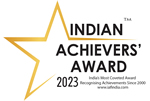A Survey Study on Big Data Analytics to Predict Diabetes Diseases Using Supervised Classification Methods
DOI:
https://doi.org/10.5281/zenodo.7644341Keywords:
Big Data, Diabetes, Supervised ClassificationAbstract
The complexity will significantly increase as the healthcare industry moves toward processing massive amounts of health records and accessing those records for analysis and implementation. Big Data from the health sector is becoming increasingly unstructured, so it is necessary to structure it, emphasise its size, and provide potential solutions. The healthcare sector faces numerous difficulties, which highlights the significance of developing data analytics. A prediction based on disease data is one of the missions. Currently, one of the leading causes of death worldwide is diabetes diseases (DD). One of the most common non-communicable diseases that affects people today is diabetes mellitus. Big data analytics can be used on this data to discover patterns and connections between the various factors that influence diabetes. The study of various supervised classification techniques is the main focus of this paper, and we also show the accuracy of each combined algorithm to give readers a clear idea of the most effective algorithm for predicting the development of diabetes.









